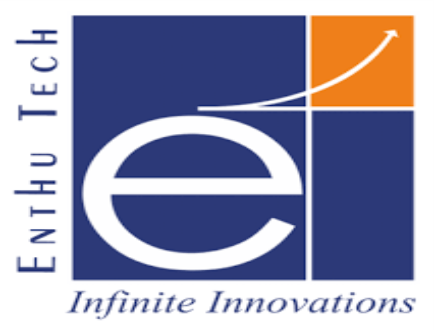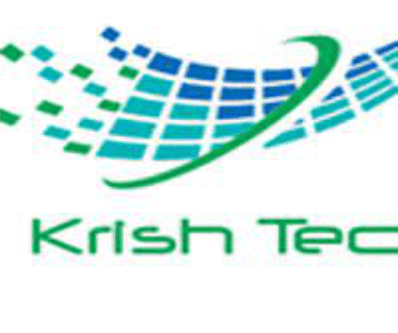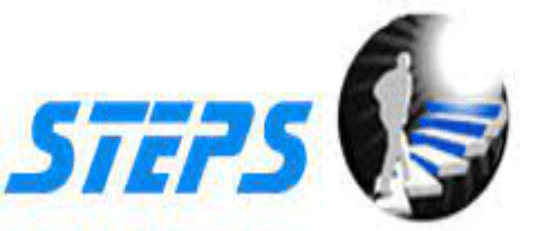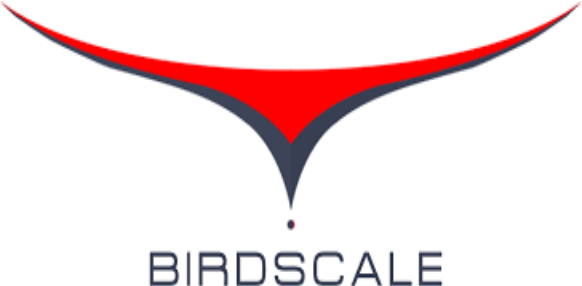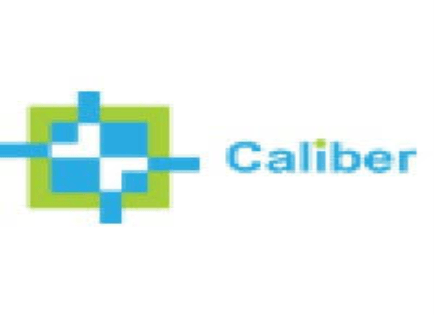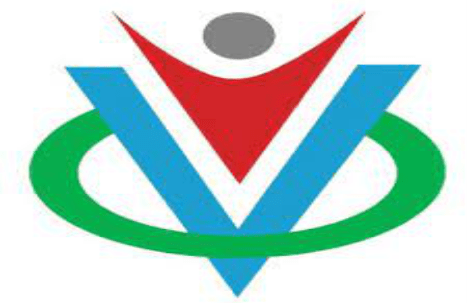
The department was established in 2009 with an intake of 60 students in the B.E. ECE programme. The objective of the department is to bring out technically competent individuals with strong ethical and professional responsibility to face the future challenges. The department consists of 14 faculty members with good proportion of experienced and energetic specialized in various disciplines.
Vision
Mission
M1: Providing quality education through effective teaching learning processes.
M2: Focus on research and excellence in electronics and communication to nurture the spirit of innovation and creativity.
M3: Enabling students for successful practice of the profession by nurturing career improvements and to develop human and social intellectual qualities.
PEO 1: Shall be successful in their professional careers, academic pursuits and research.
PEO 2: Shall study and build abilities on a continual basis in order to deliver high-impact, energy-efficient and futuristic solutions.
PEO 3: Shall demonstrate strong communication skills, a professional mindset and ethics in order to create and build real-world multidisciplinary solutions that are technically sound, economically feasible, and socially acceptable.
PSO 1: To design and develop complex systems in the research areas of next generation Communication Systems, RF and Power systems.
PSO 2: To design and develop systems in the domains of IoT based Embedded Systems, Advanced Signal and Image Processing and latest Semiconductor technologies.
PO 1: Engineering knowledge – Apply the knowledge of mathematics, science, engineering fundamentals, and an engineering specialization to the solution of complex engineering problems.
PO 2: Problem analysis – Identify, formulate, review research literature, and analyze complex engineering problems reaching substantiated conclusions using first principles of mathematics, natural sciences, and engineering sciences.
PO 3: Design/development of solutions – Design solutions for complex engineering problems and design system components or processes that meet the specified needs with appropriate consideration for the public health and safety, and the cultural, societal, and environmental considerations.
PO 4: Conduct investigations of complex problems – Use research-based knowledge and research methods including design of experiments, analysis and interpretation of data, and synthesis of the information to provide valid conclusions.
PO 5: Modern tool usage – Create, select, and apply appropriate techniques, resources, and modern engineering and IT tools including prediction and modeling to complex engineering activities with an understanding of the limitations.
PO 6: The engineer and society – Apply reasoning informed by the contextual knowledge to assess societal, health, safety, legal and cultural issues and the consequent responsibilities relevant to the professional engineering practice.
PO 7: Environment and sustainability – Understand the impact of the professional engineering solutions in societal and environmental contexts, and demonstrate the knowledge of, and need for sustainable development.
PO 8: Ethics – Apply ethical principles and commit to professional ethics and responsibilities and norms of the engineering practice.
PO 9: Individual and team work – Function effectively as an individual, and as a member or leader in diverse teams, and in multidisciplinary settings.
PO 10: Communication – Communicate effectively on complex engineering activities with the engineering community and with society at large, such as, being able to comprehend and write effective reports and design documentation, make effective presentations, and give and receive clear instructions.
PO 11: Project management and finance – Demonstrate knowledge and understanding of the engineering and management principles and apply these to one’s own work, as a member and leader in a team, to manage projects and in multidisciplinary environments.
PO 12: Life-long learning – Recognize the need for, and have the preparation and ability to engage in independent and life-long learning in the broadest context of technological change.
- 4 years Anna University Curriculum
- 93.5% placement in 2022-2023
- Industry Internship with Stipend




- Incubation centre is established in our department to inculcate and nurture the culture of innovation in the field of IoT systems through LoRaWAN technology.
- Industry supported PCB, Antenna design and Fabrication Laboratory.
- More than 60% of staffs are engaged in their research (PhD) works.
- Average Experience of our department staff is 16 years.
- Received Teaching Awards in Engineering from Staffordshire University, UK
- Holding Membership in Professional Bodies such as IETE, ISTE, IEI and IEEE.
- Received Best student Award from ISTE.
- Offering Domain specific core placement training and value added courses.
- Grants received from TNSCST for various Projects.
- Students had bought laurels in Co-curricular and Extra-curricular activities.
- Faculty knowledge updating through NPTEL and MOOC Courses.
- IETE
- ISTE
- IEI
- Faculty development programmes on various topics of contemporary interest are organized to update knowledge and skills.
- The association is named as “GNAANA”. Our association offers students to undergo Project expo, Circuit debugging, Paper Presentation, Workshop/Seminar, Quiz etc.,
- Soft skills training, out bound training and mock interviews are being conducted by inviting company professionals to make students industry- ready.
- The students undergo In plant training, Industrial Visits, Mini projects and Hackathons.
I Year Students
- Circuit designing using Spice tools and Soldering practice
II Year Students
- C and C++
- MATLAB and its applications
III Year Students
- Digital VLSI Systems
- VHDL and Verilog HDL
- Electronics and Robotics
- PCB Design
IV Year Students
- Embedded systems
- PIC Microcontroller
- Embedded systems using ATMEL 89C51/52
| S.No. | University Serial No. | Name of the Student |
|---|---|---|
| I – Year | ||
| 1 | 730322106001 | AMEERTHAVARSHAN.M |
| 2 | 730322106002 | ANUSHA.R |
| 3 | 730322106003 | ARAVIND.K |
| 4 | 730322106004 | ARUL.G |
| 5 | 730322106005 | ARUL.K |
| 6 | 730322106006 | ASHOKKUMAR.S |
| 7 | 730322106007 | ASWINI.V |
| 8 | 730322106008 | AZHAGESHWARI.C |
| 9 | 730322106009 | BALASARAVANA.G.S |
| 10 | 730322106010 | BHARANIKUMAR.K |
| 11 | 730322106011 | BHARATHI.B |
| 12 | 730322106012 | BHAVANKUTTI.B |
| 13 | 730322106013 | DEVANAND.G |
| 14 | 730322106014 | DEVI.S |
| 15 | 730322106015 | DHARANI.R |
| 16 | 730322106016 | DHARANI.S.S |
| 17 | 730322106017 | DHARSHAN.K. R |
| 18 | 730322106018 | DINESH.M |
| 19 | 730322106019 | DINESH.S |
| 20 | 730322106020 | DIVYADHARSHINI.A |
| 21 | 730322106021 | DURGADEVI.V |
| 22 | 730322106022 | GANESAN.S |
| 23 | 730322106023 | HARINI.D |
| 24 | 730322106024 | HARI NIRANJEEV.V |
| 25 | 730322106025 | HARISH.M |
| 26 | 730322106026 | HEMALATHA.R |
| 27 | 730322106027 | JEEVANANDHAN.R |
| 28 | 730322106028 | KALEESWARI.K |
| 29 | 730322106029 | KANNISWARI. M |
| 30 | 730322106030 | MAGESH.R |
| 31 | 730322106031 | MAHA.P |
| 32 | 730322106032 | MANIKANDAN.M |
| 33 | 730322106033 | MANIKANDAN.R |
| 34 | 730322106034 | MOHANRAJ.A |
| 35 | 730322106035 | MURUGANANTHAM.S |
| 36 | 730322106036 | MUTHARASAN.M |
| 37 | 730322106037 | PERIYANAYAKI .M |
| 38 | 730322106038 | PRIYADHARSHINI.K |
| 39 | 730322106039 | RISHWANTH S.V |
| 40 | 730322106040 | RITHICHARAN V.S |
| 41 | 730322106041 | SANGEETHA.S |
| 42 | 730322106042 | SANTHOSH.N |
| 43 | 730322106043 | SASIKALA R |
| 44 | 730322106044 | SEETHALAKSHMI.M |
| 45 | 730322106045 | SHOBIGA.S.P |
| 46 | 730322106046 | SOWNIYA.K |
| 47 | 730322106047 | SUBHATHRA.S |
| 48 | 730322106048 | SUGUNA.T |
| 49 | 730322106049 | SUMEDHA.S |
| 50 | 730322106050 | SUNDARBABU.M |
| 51 | 730322106051 | SUREN.S |
| 52 | 730322106052 | SWATHI.R |
| 53 | 730322106053 | TAMILARASI.R |
| 54 | 730322106054 | UDHAYABHARATHI.S |
| 55 | 730322106055 | VASANTH.M |
| 56 | 730322106056 | VEMBARASI.C |
| 57 | 730322106057 | VENKATARAMAN.K.J |
| 58 | 730322106058 | VISHNU PRIYA.M |
| 59 | 730322106059 | WILLIAM PERERA.A.K |
| II – Year | ||
| 1 | 730321106001 | AJITHKUMAR V |
| 2 | 730321106002 | ANBUSRI.G |
| 3 | 730321106003 | ANGALA ESWARI V |
| 4 | 730321106004 | BALA PRAKATHI S |
| 5 | 730321106005 | BALASAKTHIVEL M |
| 6 | 730321106006 | BHAVANI T |
| 7 | 730321106007 | DHARUN V |
| 8 | 730321106008 | DIVYA S |
| 9 | 730321106009 | GAYATHRI J C |
| 10 | 730321106010 | GNANAMOORTHI R |
| 11 | 730321106011 | GOPINATH A |
| 12 | 730321106012 | GURUNATHAN C |
| 13 | 730321106013 | HARIMEENA A |
| 14 | 730321106014 | HARISH E R |
| 15 | 730321106015 | HARISHRAJ N |
| 16 | 730321106016 | JAIVIDHYA E |
| 17 | 730321106017 | JAYACHANDHRU V |
| 18 | 730321106018 | KAMALESH A |
| 19 | 730321106019 | KARTHIESWARI R |
| 20 | 730321106020 | KARTHIK J |
| 21 | 730321106021 | KAVI BHARATHI P |
| 22 | 730321106022 | KAVIYARASU K |
| 23 | 730321106023 | KEERTHANA S |
| 24 | 730321106024 | KESAVAKALISHWARAN .E |
| 25 | 730321106025 | KISHORE S |
| 26 | 730321106026 | LAKSHMI PRIYA S |
| 27 | 730321106027 | MANIKANDAN S |
| 28 | 730321106028 | MARIYAPPAN R |
| 29 | 730321106029 | MEENAKSHI Y |
| 30 | 730321106030 | MONIKA R |
| 31 | 730321106031 | MYTHILY M |
| 32 | 730321106032 | MYTHILY S M |
| 33 | 730321106033 | NANDHINI SRI R |
| 34 | 730321106035 | PAVIYA I |
| 35 | 730321106036 | POOVITHA S |
| 36 | 730321106037 | PRATEEKSHA R |
| 37 | 730321106038 | PRIYADHARSHINI B |
| 38 | 730321106039 | RAGAVI S |
| 39 | 730321106040 | RAJARAM T |
| 40 | 730321106041 | RAMAR P |
| 41 | 730321106042 | RAVI SHANKER A |
| 42 | 730321106043 | RENUKA DEVI.S |
| 43 | 730321106044 | SABANAASMI J |
| 44 | 730321106045 | SABITHA N |
| 45 | 730321106046 | SANGAMITHRA U |
| 46 | 730321106047 | SANJAY C |
| 47 | 730321106048 | SANTHOSHINI C |
| 48 | 730321106049 | SARMATHI N |
| 49 | 730321106050 | SATHISHKUMAR M |
| 50 | 730321106051 | SHAMEENA W |
| 51 | 730321106052 | SHINY GLADIS S |
| 52 | 730321106053 | SIVASELVAN N |
| 53 | 730321106054 | SOUNDARYA K |
| 54 | 730321106055 | SUBIKA G |
| 55 | 730321106056 | SUNIL KUMAR N |
| 56 | 730321106057 | SURYA R |
| 57 | 730321106058 | THIRUNAVUKKARASU ST |
| 58 | 730321106059 | UMA MAHESWARI R |
| 59 | 730321106060 | VAISHNAVH KK |
| 60 | 730321106061 | VANITHA V |
| 61 | 730321106062 | VIDYASAGAR M |
| 62 | 730321106063 | VIGNESH M |
| 63 | 730321106301 | KAVYASHRI K |
| 64 | 730321106302 | KRISHNARAJ M |
| 65 | 730321106303 | PRAVEEN K |
| 66 | 730321106304 | YOGESH S |
| III – Year | ||
| 1 | 730320106001 | ARUN KUMAR G |
| 2 | 730320106002 | DHANAM K |
| 3 | 730320106003 | DIVYA S |
| 4 | 730320106004 | GOKULAPRIYA A |
| 5 | 730320106005 | HEMALATHA B |
| 6 | 730320106006 | MANJULA G |
| 7 | 730320106007 | NATHIYA K |
| 8 | 730320106008 | PAVITHRA G |
| 9 | 730320106009 | RAKSHANA M |
| 10 | 730320106010 | ROHINTH P |
| 11 | 730320106011 | SARANYA J |
| 12 | 730320106012 | SINDHIYA M |
| 13 | 730320106013 | SIVASELVAN J |
| 14 | 730320106014 | SOUNDAR N |
| 15 | 730320106015 | SOUNTHARYA V |
| 16 | 730320106016 | VANMATHI T |
| 17 | 730320106301 | ABIRAMAN.N |
| 18 | 730320106302 | DHARANI.M |
| 19 | 730320106304 | KAVIYARASAN.R |
| 20 | 730320106305 | NATARAJ.K |
| 21 | 730320106306 | PANNERSELVAM.V |
| 22 | 730320106307 | PRAVEEN.M |
| 23 | 730320106309 | SHARIGHA.K |
| 24 | 730320106310 | SIVA.R |
| 25 | 730320106311 | SUBRAMANIA SIVA.J |
| 26 | 730320106312 | TAJUNNISA.A.R. |
| IV – Year | ||
| 1 | 730319106001 | AADHISESHAN K S |
| 2 | 730319106002 | ABILASH R |
| 3 | 730319106003 | AJITH R |
| 4 | 730319106004 | ANANDHAKUMAR C |
| 5 | 730319106005 | ANANDHAN V |
| 6 | 730319106006 | ASHOKKUMAR P |
| 7 | 730319106007 | BARATHKUMAR S |
| 8 | 730319106009 | DHARANI J |
| 9 | 730319106010 | DHIVYA S |
| 10 | 730319106011 | DINESHKUMAR M |
| 11 | 730319106012 | DIVYA T |
| 12 | 730319106013 | GOKULAKANNAN K |
| 13 | 730319106014 | HARINI G |
| 14 | 730319106016 | INDHUMALINI A |
| 15 | 730319106017 | INDHUMATHI T |
| 16 | 730319106018 | JEYACHANDHIRAN S |
| 17 | 730319106019 | KAVIYARASU K B |
| 18 | 730319106020 | LACKSHMIPRABHA E |
| 19 | 730319106021 | MAHALAKSHMI S |
| 20 | 730319106022 | MAHESWARI S |
| 21 | 730319106023 | MANIBALAN V |
| 22 | 730319106024 | MOHAN B |
| 23 | 730319106025 | MURALIDHARAN N |
| 24 | 730319106026 | NANDHINI R |
| 25 | 730319106027 | NAVEEN T |
| 26 | 730319106028 | NAVEENKUMAR J |
| 27 | 730319106029 | NAVEENKUMAR R |
| 28 | 730319106030 | NAVEENKUMAR S |
| 29 | 730319106031 | NITHYASHREE R |
| 30 | 730319106032 | PAVITHRA N |
| 31 | 730319106033 | PRABAKAR P |
| 32 | 730319106034 | PRAGADEESWARAN.J |
| 33 | 730319106035 | PRASANTH S |
| 34 | 730319106036 | PREMKUMAR S |
| 35 | 730319106037 | PRIYADHARSHINI J |
| 36 | 730319106038 | REVATHI R |
| 37 | 730319106039 | SABITHA C |
| 38 | 730319106040 | SAKTHIVEL G |
| 39 | 730319106041 | SANJEEVE S P |
| 40 | 730319106042 | SHANMUGA PRIYA C |
| 41 | 730319106043 | SHARULATHA R |
| 42 | 730319106044 | SIVAGNANAM A V |
| 43 | 730319106045 | SUGESH N |
| 44 | 730319106046 | VASANTHA PRIYA V |
| 45 | 730319106047 | VENKATRAMANAN K |
| 46 | 730319106048 | YOGASHREE J |
| S.NO. | NAME | DESIGNATION | DOJ | QUALIFICATION | NATURE OF ASSOCIATION |
| 1 | Dr.C.VENKATESH | Professor | 15-11-2021 | M.E., Ph.D. | Regular |
| 2 | Dr.S.KUMAR | Professor & Head | 01-11-2021 | M.E., Ph.D. | Regular |
| 3 | Dr.R.UMADEVI | Professor | 01-06-2023 | M.E., Ph.D. | Contractual |
| 4 | Ms.V.MANIMALA | Associate Professor | 06-06-2011 | M.E.,(Ph.D) | Regular |
| 5 | Mr.S.D.VIJAYAKUMAR | Associate Professor | 01-06-2012 | M.E.,(Ph.D) | Regular |
| 6 | Dr.R.PRAVEEN KUMAR | Associate Professor | 01-06-2012 | M.E., Ph.D. | Regular |
| 7 | Mr.V.KUMAR | Assistant Professor (SL.G.) | 08-06-2011 | B.E., M.E., | Regular |
| 8 | Ms.G.VIJAYAKUMARI | Assistant Professor (SR.G.) | 01-03-2013 | M.Tech., (Ph.D) | Regular |
| 9 | Mr.T.VELMURUGAN | Assistant Professor (SR.G.) | 03-06-2013 | M.E., (Ph.D) | Regular |
| 10 | Mr.M. SHANMUGHAM | Assistant Professor (SR.G.) | 03-06-2013 | M.E., (Ph.D) | Regular |
| 11 | Mr.M.PRAKASH | Assistant Professor | 18-12-2017 | M.E., (Ph.D) | Regular |
| 12 | Mr.U. RAJASEKARAN | Assistant Professor(SR.G.) | 13-07-2018 | B.E., M.E., | Regular |
| 13 | Ms.S.JAYABRATHA | Assistant Professor | 27-07-2022 | B.E., M.E., | Regular |
| 14 | Ms.R.PREETHI | Assistant Professor | 27-07-2022 | B.E., M.E., | Regular |

Teaching : 15 Years
Industry : 2 Years

Teaching : 33 Years

Teaching : 31 Years

Teaching : 21 Years

Teaching : 12 Years

Teaching : 14 Years

Teaching : 14 Years

Teaching : 13 Years

Teaching : 14 Years

Teaching : 13 Years

Teaching: 11 Years

Teaching : 6 Years
Industry : 2 Years

Teaching : 4 Years

Teaching : 1 Year


- To inculcate and nurture the culture of innovation in the field of IoT systems at campus.
- To seed in the minds about start-ups and to create vibrant start-up environment in the campus.
- To help in developing Innovative Ideas to take care of societal needs.
- To find solutions for real life problems by providing mentor to the young minds.
- To translate ideas into the products.
- Electrical Science Laboratory
- Integrated Circuits Laboratory
- Microprocessor and Microcontroller Laboratory
- Simulation Laboratory
- Communication Systems Laboratory
- Networks Laboratory
- Microwave and Optical Laboratory
- Electronic Devices and Circuits Laboratory
- Embedded Systems Laboratory

